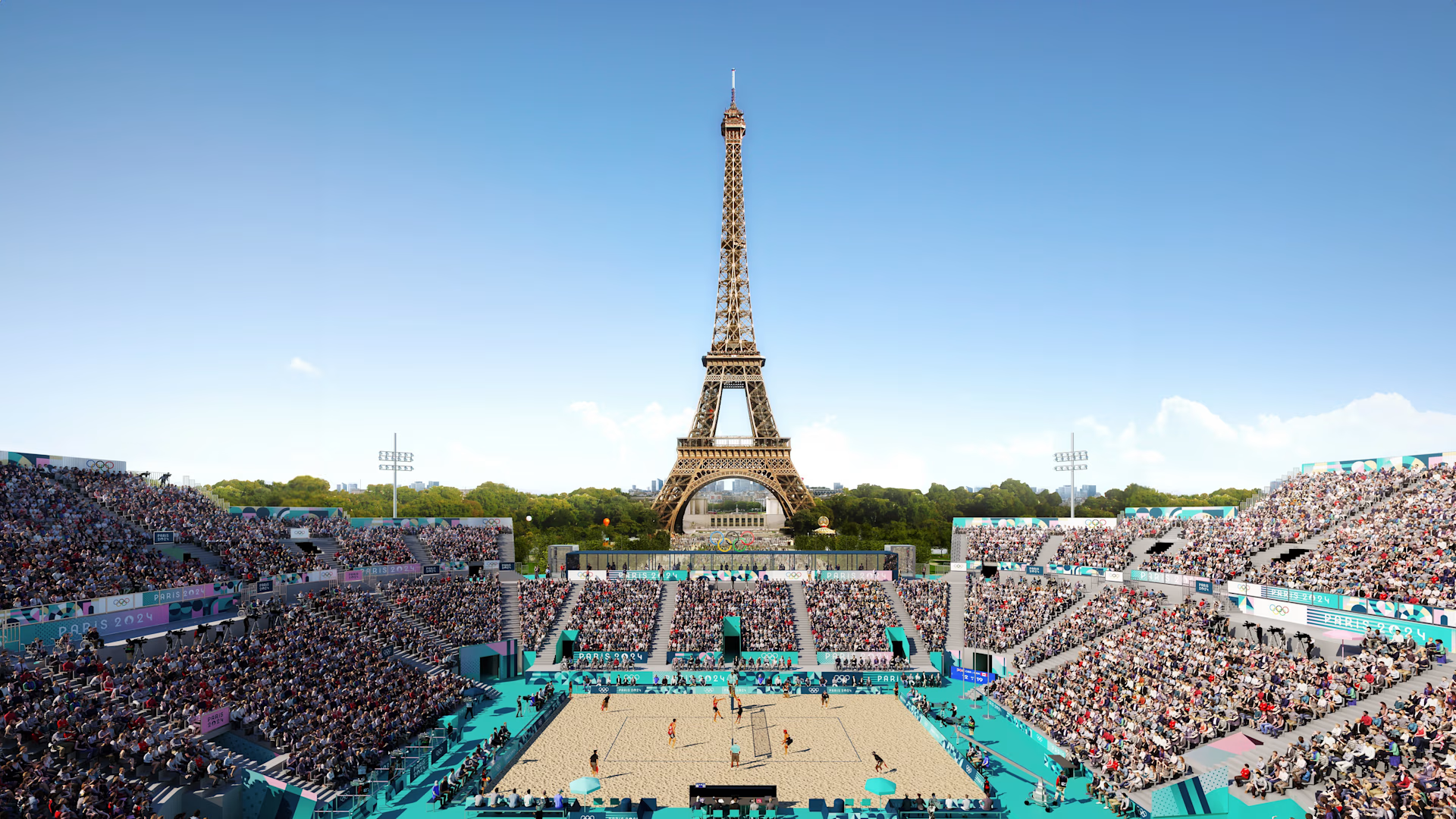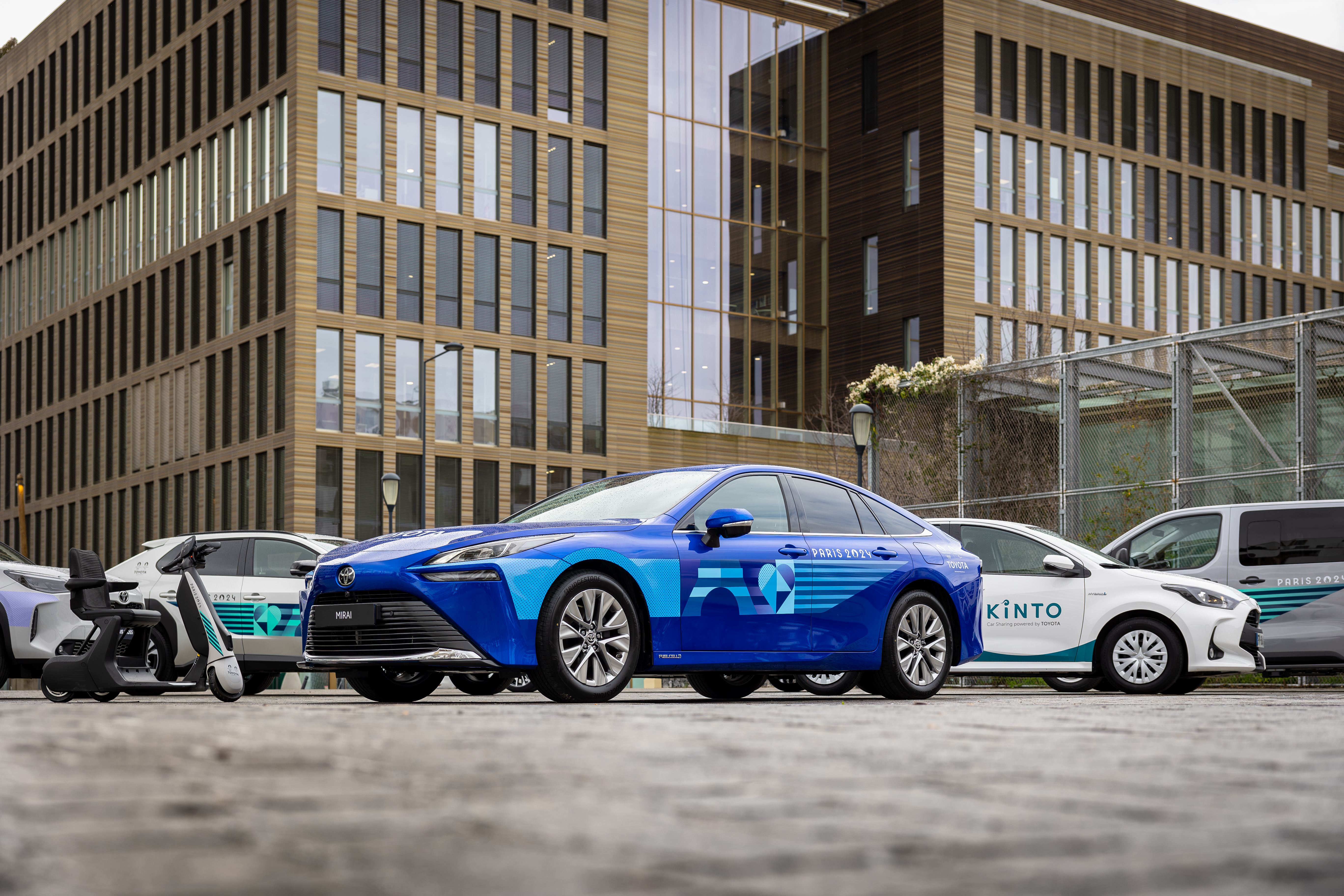Sustainability and EVs at the Paris 2024 Olympic Games
Jul 24, 2024 · 6 min read · blog
The excitement for the Paris 2024 Olympic Games is building, and beyond the thrill of the competitions, Paris is making a significant impact with its strong commitment to sustainability, aiming to set new standards for eco-friendly practices in global events.
This blog post explores the key sustainability initiatives that Paris 2024 is implementing, including the extensive use of electric vehicles, ambitious carbon reduction goals, and innovative infrastructure development. We will discuss how these efforts not only aim to make Paris 2024 the greenest Olympics ever but also set a precedent for a more sustainable future in large-scale events and urban development.
Paris 2024’s commitment to sustainability
Paris 2024’s commitment to sustainability is at the heart of its Legacy and Sustainability Plan. This comprehensive plan outlines the vision and goals of the organizing committee, emphasizing the integration of sustainable practices across all aspects of the Games. The main objectives include reducing carbon emissions, promoting renewable energy, and ensuring that infrastructure development aligns with eco-friendly standards.
A cornerstone of this plan is the commitment to align with the Paris Agreement by halving greenhouse gas emissions and achieving carbon neutrality by 2021. This involves a multi-faceted approach, focusing on a low-impact infrastructure concept where 95% of the facilities are either temporary or already existing. The carbon footprint for the Games is managed with a 'carbon budget,' aiming to limit total emissions to 1.5 million tonnes of CO2, significantly lower than the average of previous Games.

Source: www.olympics.com
The plan includes adopting an innovative approach that shifts from a post-event assessment of the carbon footprint to a pre-Games definition of a carbon impact reduction target and strategy. This strategy involves considering all carbon emissions, both direct and indirect, including spectator travel. Measures to avoid, reduce, and control carbon emissions are integrated into all operations, from construction to catering. Only one new competition venue, the Aquatics Centre, is being built specifically for the Games, which will be a lasting legacy for the community.
In addition to reducing emissions, Paris 2024 has developed a funding program for projects aimed at avoiding and capturing carbon emissions, including forestry projects in France. The Games will also feature initiatives to enhance biodiversity, promote a circular economy, and encourage the use of sustainable technologies.
By setting these ambitious goals, Paris 2024 aims to not only minimize the environmental impact of the Games but also establish new benchmarks for future Olympic Games, inspiring other host cities to prioritize sustainability in their planning and execution. The collaborative approach involves various stakeholders, including the French government, local authorities, NGOs, and private sector partners, ensuring a comprehensive and inclusive strategy for sustainable development.

Aquatics Centre. Source: www.olympics.com
Integration of EVs into the Games
Paris 2024 is prioritizing sustainable mobility by integrating electric vehicles extensively into the Games. Toyota, as the main provider, will supply over 2,650 electrified vehicles, including battery electric vehicles, fuel cell electric vehicles, and hybrid electric vehicles. This fleet will feature 250 Accessible People Movers (APMs) and 50 electric assisters for wheelchair users, ensuring inclusive transportation for athletes, officials, and spectators. Toyota's fleet, identifiable by dedicated colors representing different technologies, underscores a multi-path strategy to carbon neutrality. Additionally, Toyota's KINTO mobility services are already supporting Paris 2024 employees with efficient transportation solutions, highlighting the commitment to sustainability and inclusivity.
The Paris 2024 fleet key handover ceremony on March 1st marked a milestone, unveiling Toyota’s visual identity for the event and emphasizing the collaboration between Toyota and the Games. Toyota’s vehicles will feature a design inspired by the Look of the Games, enhancing the visual connection between the event and its sustainability goals.

Source: Toyota Europe Newsroom
Infrastructure and charging solutions
Paris is gearing up to support a significant influx of electric vehicles with a robust charging infrastructure. The city has taken an active approach by deploying a comprehensive network of charging stations to facilitate electric and plug-in hybrid vehicles. Central to this effort is the Belib' public charging network, which includes over 2,000 charging stations with a mix of standard and fast-charging options.
To accommodate the increased demand during the Olympics, Paris aims to expand its network, adding more fast-charging stations and ensuring accessibility throughout the city. Major players like Electra plan to build 1,000 ultra-fast charging stations by 2030, making recharging as convenient as filling up with traditional fuel. This expansion is supported by initiatives from companies like Engie and EDF’s subsidiary, Izivia, which are actively contributing to the deployment of additional charging points.
Paris 2024's strategy also includes innovative technologies, such as retractable electrical terminals at temporary venues, and ensuring that all Games venues are connected to the power grid with 100% renewable electricity. These efforts, coupled with the collaboration between public and private sectors, illustrate Paris’s commitment to providing a seamless, eco-friendly experience for visitors and residents, and ensuring a lasting legacy of sustainable urban mobility.

Source: International Olympic Committee
Conclusion
By prioritizing sustainability, Paris 2024 not only aims to minimize the environmental impact of the Games but also seeks to inspire other host cities and major events worldwide. This comprehensive approach ensures that the benefits of these sustainable practices will extend beyond the Games, leaving a lasting legacy for the city of Paris and its residents. As the world watches, Paris 2024 will showcase how major sporting events can lead by example in the fight against climate change and the transition towards a more sustainable future.